Filter by

Endometriosis A Comprehensive Update
This SpringerBrief provides an update on endometriosis research -- from the underlying mechanisms, predisposing factors, role of environmental pollutants, treatment options, impact on quality of life, and biomarkers, to emerging treatment modalities in order to help clinicians to pursue a patient-centered approach in managing the disease. This book provides clinicians with a better insight into…
- Edition
- -
- ISBN/ISSN
- 978-3-319-18308-4
- Collation
- 10 b/w illustrations, 9 illustrations in colour
- Series Title
- -
- Call Number
- -
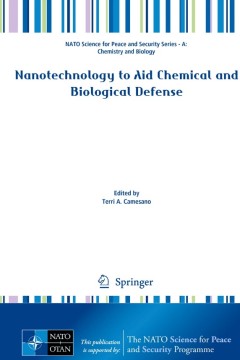
Nanotechnology to Aid Chemical and Biological Defense
This book presents research into chemical, biological, radiological and nuclear (CBRN) defense and environmental security, exploring practical implications of the research. Contributions from a diverse group of international civilian researchers present the latest work on nanotechnology problems in this area, looking at detection, protective technologies, decontamination and threats to environm…
- Edition
- 1
- ISBN/ISSN
- 978-94-017-7217-4
- Collation
- XIV, 221
- Series Title
- NATO Science for Peace and Security Series A: Chemistry and Biology
- Call Number
- -

Theoretical and Empirical Insights into Child and Family Poverty Cross Natio…
- Edition
- -
- ISBN/ISSN
- 978-3-319-17506-5
- Collation
- 43 b/w illustrations
- Series Title
- -
- Call Number
- -
- Edition
- -
- ISBN/ISSN
- 978-3-319-17506-5
- Collation
- 43 b/w illustrations
- Series Title
- -
- Call Number
- -

Encyclopedia of Metagenomics Genes, Genomes and Metagenomes. Basics, Methods…
Metagenomics has taken off as one of the major cutting-edge fields of research. The field has broad implications for human health and disease, animal production and environmental health. Metagenomics has opened up a wealth of data, tools, technologies and applications that allow us to access the majority of organisms that we still cannot access in pure culture (an estimated 99% of microbial lif…
- Edition
- -
- ISBN/ISSN
- 978-1-4899-7478-5
- Collation
- 39 b/w illustrations, 178 illustrations in colour
- Series Title
- -
- Call Number
- -

Their World: A Diversity of Microbial Environments
This volume summarizes recent advances in environmental microbiology by providing fascinating insights into the diversity of microbial life that exists on our planet. The first two chapters present theoretical perspectives that help to consolidate our understanding of evolution as an adaptive process by which the niche and habitat of each species develop in a manner that interconnects individua…
- Edition
- -
- ISBN/ISSN
- 978-3-319-28071-4
- Collation
- -
- Series Title
- -
- Call Number
- -
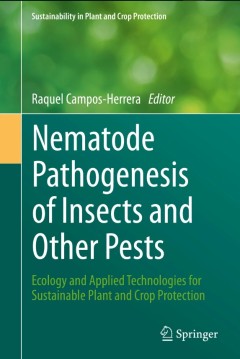
Nematode Pathogenesis of Insects and Other Pests:Ecology and Applied Technolo…
Achieving a sustainable agriculture requires integrating advances in multiples disciplines, covering both fundamental and applied research in a common objective: enhancing crop health for better productions. This first volume of the Series “Sustainability in plant and crop protection” presents a comprehensive and multi-disciplinary compendium about the recent achievements in the use of ento…
- Edition
- 1
- ISBN/ISSN
- 978-3-319-18266-7
- Collation
- XVII, 531
- Series Title
- Sustainability in Plant and Crop Protection
- Call Number
- -
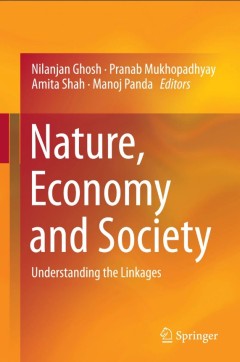
Nature, Economy and Society:Understanding the Linkages
This book presents an enquiry into the interface between nature, economy and society, which is still in its early stages, notwithstanding the commendable progress and advances made in the field of environmental and natural resource economics within the ever-expanding boundaries of economics as a discipline. It further delineates the evolution of an inter-disciplinary framework for analyzing the…
- Edition
- 1
- ISBN/ISSN
- 978-81-322-2403-7
- Collation
- XII, 357
- Series Title
- -
- Call Number
- -
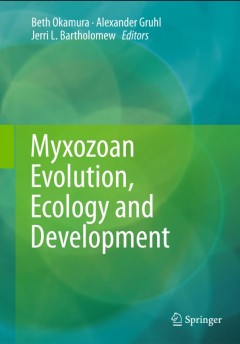
Myxozoan Evolution, Ecology and Development
This book provides an up-to-date review of the biology of myxozoans, which represent a divergent clade of endoparasitic cnidarians. Myxozoans are of fundamental interest in understanding how early diverging metazoans have adopted parasitic lifestyles, and are also of considerable economic and ecological concern as endoparasites of fish. Synthesizing recent research, the chapters explore issues …
- Edition
- 1
- ISBN/ISSN
- 978-3-319-14752-9
- Collation
- XIII, 441
- Series Title
- -
- Call Number
- -
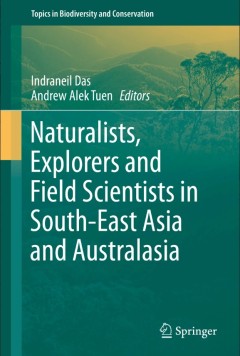
Naturalists, Explorers and Field Scientists in South-East Asia and Australasia
"Alfred Russel Wallace- His Predecessors and Successors. Naturalists, Explorers and Field Scientists in South-east Asia and Australasia. An International Conference" will be the premier forum for the presentation of new advances and research results in the fields of studies on Alfred Russel Wallace and other natural historians, past and present, as well as contemporary research on South-east…
- Edition
- 1
- ISBN/ISSN
- 978-3-319-26159-1
- Collation
- XI, 283
- Series Title
- Topics in Biodiversity and Conservation
- Call Number
- -
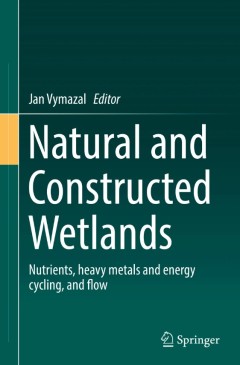
Natural and Constructed Wetlands:Nutrients, heavy metals and energy cycling, …
The book extends the knowledge on wetland ecosystem services based on the new research. The information combines the achievements gained in carbon sequestration, nutrient accumulation, macrophyte decomposition, wastewater treatment, global warming mitigation in constructed as well as natural wetlands across the globe. The book presents up-to-date results of ongoing research and the content of …
- Edition
- 1
- ISBN/ISSN
- 978-3-319-81774-3
- Collation
- XV, 295
- Series Title
- -
- Call Number
- -
 Computer Science, Information & General Works
Computer Science, Information & General Works  Philosophy & Psychology
Philosophy & Psychology  Religion
Religion  Social Sciences
Social Sciences  Language
Language  Pure Science
Pure Science  Applied Sciences
Applied Sciences  Art & Recreation
Art & Recreation  Literature
Literature  History & Geography
History & Geography